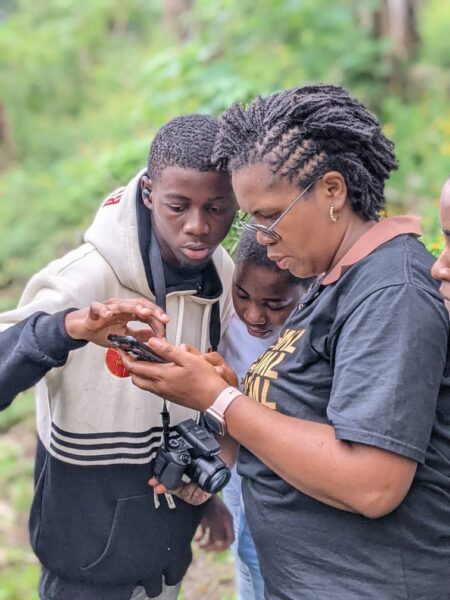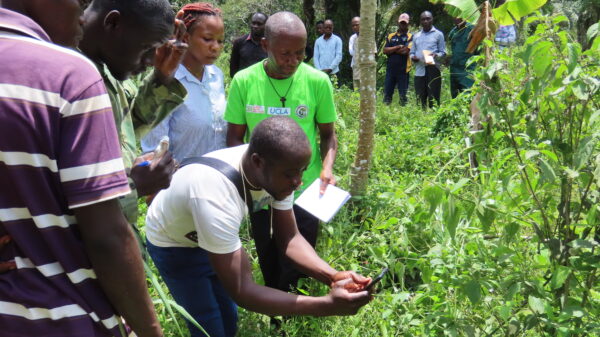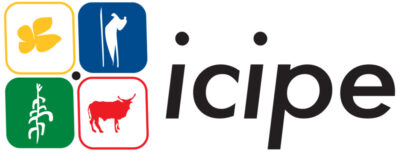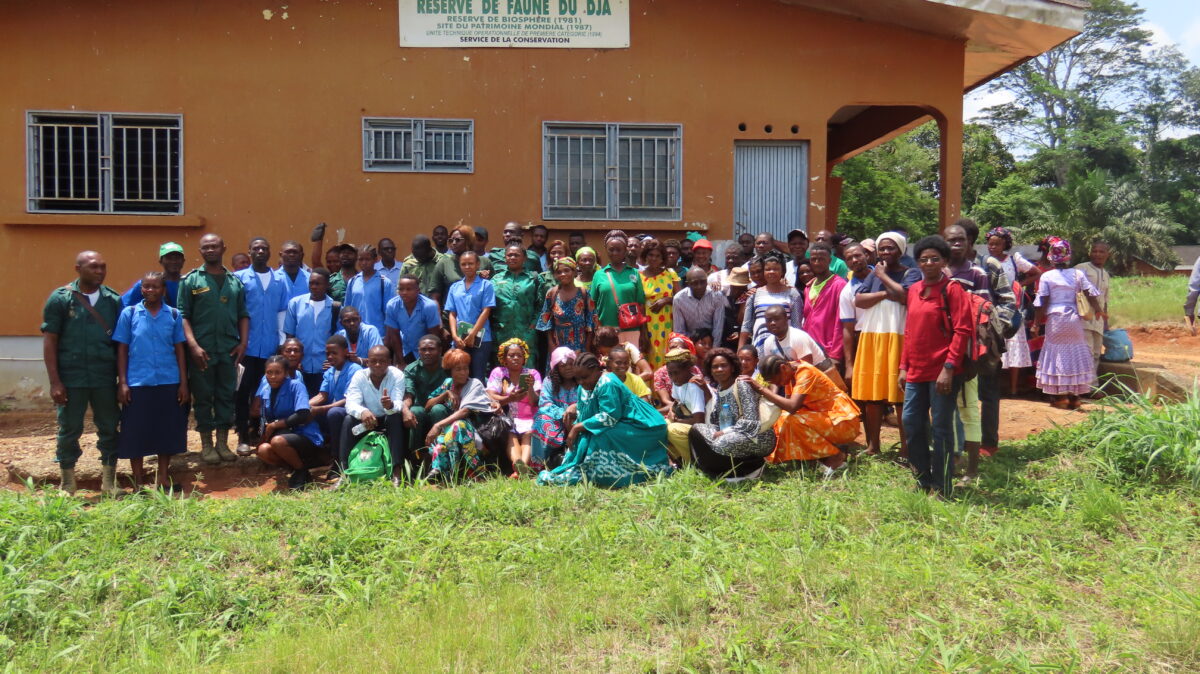JRS grantee ICIPE successfully organized trainings to document pollinator biodiversity this past spring. Diverse sites across the country included Mount Cameroon National Park, the Dja Faunal Reserve, and Benoue National Park in northern Cameroon. Project Lead Dr. Beatrice Nganso and her team brought together over 175 participants including students from local secondary and high schools, postgraduate students, farmers, researchers from the Institute of Agricultural Research Development (IRAD) and the Universities of Maroua and Buea as well as conservation officials from the Ministry of Forestry and Wildlife (MINOF).


The overall goal of the Increase Knowledge, Awareness and Data Accessibility for Bee and Dipteran Pollinators, their Forage Plant Species to Support Conservation of Plant-Pollinator Interactions in Cameroon project is to mainstream data on pollinators and their forage plant species to elevate the importance of conserving plant-pollinator networks essential to agricultural productivity, livelihoods, and community wellness in Cameroon.
Following this successful bioblitz, Dr. Nganso and her team sorted through hundreds of insect specimens from Mt. Cameroon and were excited to find at least one potentially new species to science. We are excited to follow the successes of this project and to share future findings!
To read more about the Increase Knowledge, Awareness and Data Accessibility for Bee and Dipteran Pollinators, their Forage Plant Species to Support Conservation of Plant-Pollinator Interactions in Cameroon project, click here.


